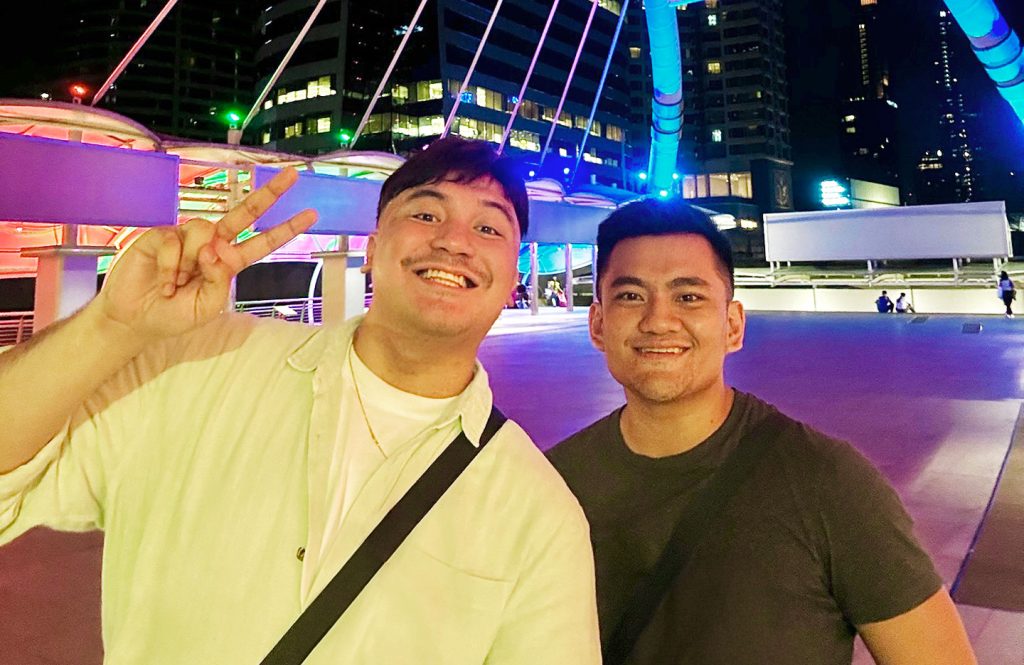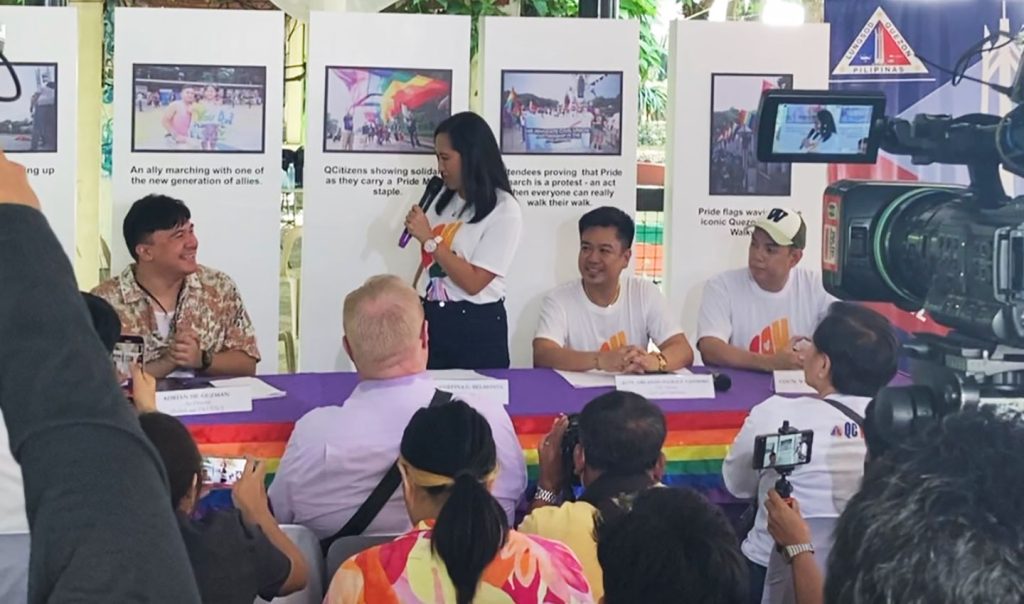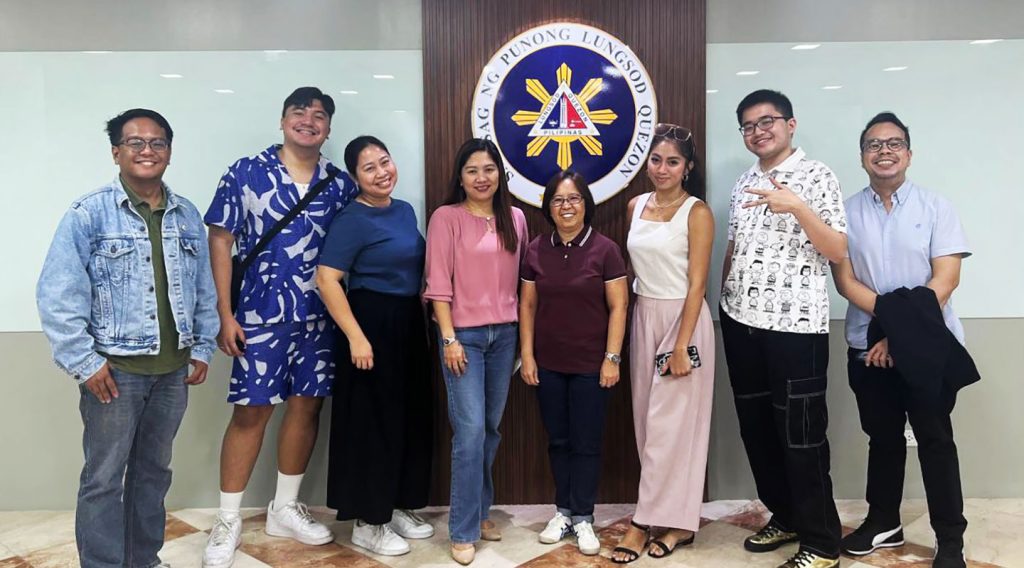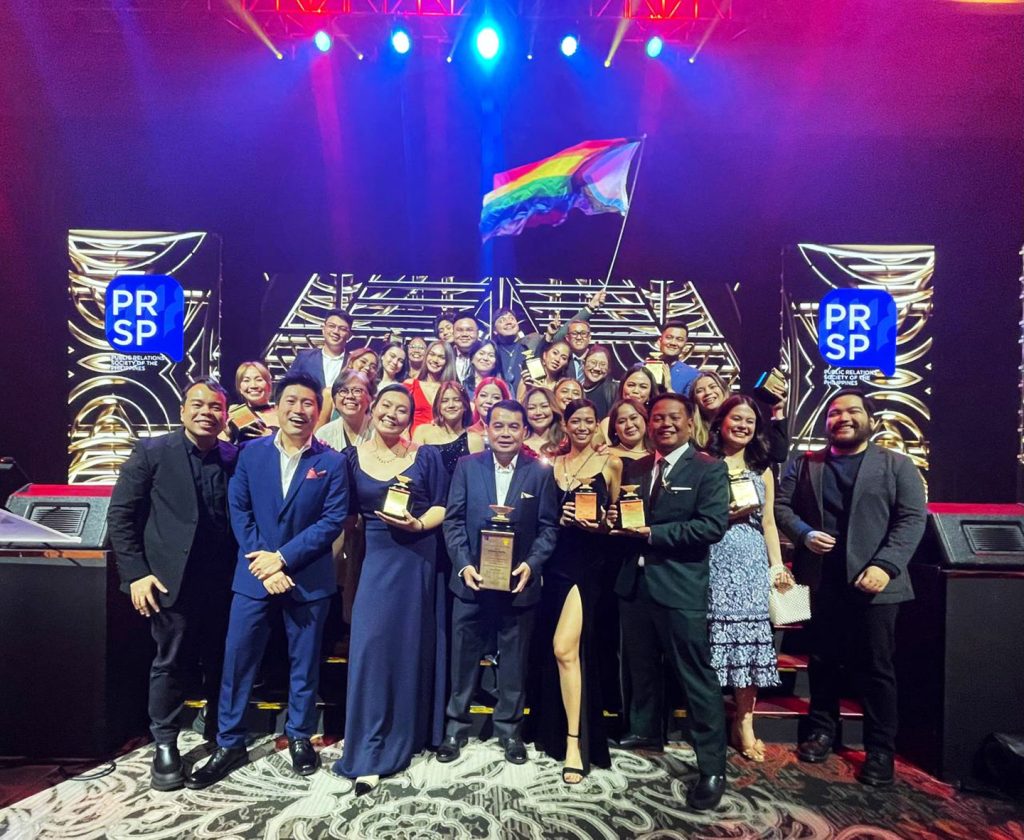MANILA, PHILIPPINES — Historically, the Philippines has always been one of the more traditional countries in the world, with its deep-rooted religious ideologies, and typically heteronormative cultural “rules.” However, during last year’s Pride, a significant step in equality and inclusivity was set in motion, granting LGBTQIA+ couples rights that were previously seemingly out of reach.
Spearheaded by creative agency MullenLowe TREYNA and the Quezon City Gender and Development Council, the “Right to Care” card aimed to expand healthcare and health benefits beyond the traditional picture of family. In this exclusive story, adobo Magazine caught up with MullenLowe TREYNA’s Associate Creative Directors Paulo dela Rosa and Adrian de Guzman, key minds in the creation of the campaign, to revisit the initiative, and ask: One year since its launch, has Right to Care truly made an impact in Philippine society?

The Right to Care card is a physical card that allows same-sex couples the right to decide for each other in medical emergencies, granting a basic right for a community who otherwise have no laws to protect them in their own country. The card repurposes a Special Power of Attorney (SPA), commonly used in financial transactions, to honor chosen partners as legal decision-makers in instances where, previously, only guardians and spouses had the privilege to be recognized. And in a country where neither same-sex marriage or same-sex civil unions are legally recognized, Quezon City has provided them the only way to ensure LGBTQIA+ couples’ choices are honored in these times — an invaluable initiative towards inclusivity and security for all.
Launched at QC Pride in 2023, Paulo and Adrian noted the indescribable feeling of witnessing Right to Care’s launch in front of 110,000 queer individuals, couples and allies, and being there to personally experience that collective moment of joy and wonder. “I don’t know if Paulo would agree but the love for the initiative was overflowing. It has become everyone’s initiative, and for it to be announced in front of 110,000 individuals was crazy!” Adrian remarked.

Paulo dela Rosa
Paulo recalled, “I definitely agree with Adrian. From a creative person’s perspective, I have never seen a queer-related campaign that moved so many people. As in manyyyyy. At first, I really didn’t fully grasp how monumental this project is until we got commendations from CHR, DOH, and even from Senator Risa.”
“I was one of the people manning the Right to Care card booth last year during the QC Pride and every time may lalapit sa amin to pre-register, feel ko ang buti, buti, buti, ng mundo; na may pag-asa as long as we care and fight for each other.” (I was one of the people manning the Right to Care card booth last year during QC Pride and every time someone approached us to register, I felt like the world was so, so good; that there’s hope as long as we care and fight for each other.)




Today, it is a city-wide ordinance in the capital’s biggest and most populated city, which requires every hospital and health facility to honor everyone’s “Right to Care.” This means that it is now law, and will outlive the current mayor “and outlive all of us,” they underlined.
This campaign has also unlocked such heartwarming stories from the LGBTQIA+ community, Paulo and Adrian shared, with couples going as far as proposing to their beloved partners with the card as it has become as powerful as a wedding ring, representing the promise of a future where they’ll be able to take care of each other in sickness and in health.
They also recalled the very first Right to Care card orientation last year where they met couples who signed up for the card. One of which was an old LGBTQ couple, roughly in the 50s, who told them, “’Di namin inakala na dadatnan namin‘tong moment na magkaka-rights kami sa isa’t isa. Para bang dininig yung pinaglalaban ng LGBT community, kahit sa aspeto na‘to.” (We never thought we’d reach this moment where we’ll actually have rights with each other. It’s like the LGBT community’s fight is finally being recognized and answered, even in this aspect.)
“Best believe I held my tears back, Pauline. That moment is the moment I realized we did something good,” Paulo opened up.
A year later, and Paulo and Adrian believe that the most significant impact Right to Care has offered is the normalcy it has created for queer couples to apply for a legal document. “[This is] something that has been deprived of us and has not been experienced by any queer person for the longest time. When the QC GAD [first] announced the dates for [Right to Care] orientation, I felt this sense of normalcy,” Adrian mused. The QC GAD is Quezon City’s Gender And Development [GAD] Council, which supports and coordinates all GAD-related initiatives.

“As a queer person, having the chance to own something that can make me feel like I am accepted in society feels so surreal,” Paulo added.
They also noted that the campaign has opened many conversations in terms of queer inclusivity in state policies, hoping that it might inspire policymakers to see their value because of what Right to Care has achieved. In fact, Quezon City has recently launched its groundbreaking Trans Program to provide free hormone counseling, assessment, and management to transgender Filipinos — which is yet another incredible feat for the community, and a striking indication of these welcome developments in the country. It’s also adding to the clamor for the passage of the SOGIESC Equality Bill, an anti-discrimination bill that seeks to protect a person from discrimination based on their sexual orientation, gender identity and expression, or sex characteristics (SOGIESC), also known by its previous name, the SOGIE Bill.
Emboldened by these wins and wishes, the MullenLowe TREYNA team continues to fight for more cities to recognize Right to Care, and grant rights to as many LGBTQIA+ couples as possible. But, in the same way that the campaign took two years to launch, expansions are also proving to take some time and a lot of hard work, the duo shared.
“We have learned throughout this process that every city really has an interest they want to protect and prioritize. Obviously, cities that have not implemented their own version of Anti-Discrimination Ordinance based on SOGIE will be so much harder to approach. To date, there have been almost only 80 cities, municipalities, and provinces that have ADOs — which can only protect 30% of the Philippine population. That’s why along with Right To Care and its challenges, we also have to take a step back and look at the big picture — these challenges can be solved one by one if we have queer-inclusive policies and laws like the SOGIESC Equality Bill,” Adrian stated.


Paulo also shared, “I think the hardest part of offering this program to other LGUs always comes during the Q&A, when they start to ask about the nature of SPOA. Sometimes, there are questions about what if the families of the principal aren’t aligned with the decision of the bearer of the RTC card, to which we try to answer based on our learnings during our sessions with the QC legal team. As much as possible, we try to set a few more meetings with the lawyers to provide clarity on certain matters.”
“Honestly, a lot of people still don’t understand why we need things like the SOGIE Bill. But when we pivot the conversation and leverage on something that’s fundamentally human, naiintindihan ng mga tao bakit kailangan nating itong mga ganitong solusyon.” (…they understand why we need these types of solutions.)
“That’s also the reason why we decided to call this campaign ‘Right to Care’ — to make people understand that all human beings need the right to take care of their loved ones, regardless of our gender and sexual preferences.”
This was one the key realizations the duo learned since the campaign’s launch: the power of advertising — and creativity in general — in introducing concepts, truths, and new outlooks for us all to understand each other better. “Coming from this, I realized that we need to be a little more inventive and strategic as a community for us to be able to get the rights we rightfully deserve. [It sucks] because the burden is with us, but it works. So we need more efforts like this,” Paulo shared.
Adrian added, “[What surprised me] was that at the end of the day, advertising is really a huge platform and it has not lost its influence and momentum to move people. We can use the power of creativity to do good. We’ve never seen a case video that has gone viral on the internet? We’ve never seen a case video where a lot of people cried to it? A year later after the launch and many years ago when it was still in our heads, it lives because it showed how human we humans are.”

Adrian de Guzman
On a personal level, both Adrian and Paulo feel passionate about this project as queer individuals, and proud as part of the queer-led Right to Care team, as they shared that majority of the team working on the campaign is actually part of the LGBTQIA+ community. “So you can imagine how the group chat explodes from time to time if there’s a big movement that has happened,” Adrian mused. “Just last week, the Philippines’ most influential and biggest celebrity — who is queer — the Unkabogable Vice Ganda applauded the initiative and we went wild! It is a selfish yet selfless moment for all of us, too, because aside from bringing this issue to light and affecting the community, it also affects us and our future partners.”
Meanwhile, for Paulo, the campaign came at the perfect point of realization in his career, “In 2020, during the height of the pandemic, I almost quit advertising because I cannot do anything to help people suffering. I thought our jobs were nonsense and I even went as far as using the word ‘superficial’ to describe it,” he opened up. “But I decided to stay. Since then, I knew that I want to be able to help others. That’s why I am thankful for the team behind Right to Care — Adrian, Roman, Abi, Leigh, Mike, literally everyone for allowing me to be a part of this purposeful work. Thank you.”
“My hope is this work serves as an inspiration and a reminder to different creatives that advertising can be more and that creativity can change the way society thinks about things.”
So, what’s next for Right to Care?
Now that its legacy in Quezon City has been assured because of its city-wide ordinance, the mission is truly to get more cities to adopt it. And hopefully, that one day the Philippines would recognize civil union or same-sex marriage so there won’t be a need for Right to Care cards anymore, the duo stressed. But until then, the fight goes on, and the team remains steadfast in its commitment to bring this right to more people across the country.
Finally, as a piece of advertising work, the campaign has also been widely acclaimed in the industry, bagging the Philippines’ first Grand Prix for Glass: The Award for Change at Spikes Asia 2024, a Silver Sustainable Lotus at ADFEST 2024, and the Grand Kidlat for Creativity in Experience and Kidlat Sinang for Creativity for Good at the Kidlat Awards 2024 as some of their biggest awards, on top of many more metals across the board.

To Adrian, these recognitions mean one thing: “The whole world is watching and rooting for the Philippines to wake up one day and to finally choose progress, march towards equality, and just let all the colors of love in and let love win.”
Paulo then recalled our own conversation at ADFEST 2024, when we first met and we interviewed them on the campaign: “I remember saying that for me, awards don’t matter. I hope that everyone thinks this way.”
“There is an industry joke going around for decades — ‘di tayo nakakasave ng buhay sa advertising, ha?” (We’re not saving lives in advertising.)
“It’s not always true. If only we find the right opportunity to harness our creativity to do good, we might be able to save people from so much trouble,” he underlined.
So in the spirit of Pride month and the continuous fight for equality, we look to Right to Care’s journey, impact, and promise for the hope of a future where everyone feels safe knowing that their loved ones have their backs, in every sense of the word. The process might take long, the fight might not seem fruitful at times, but it is to these successes and these stories that we continue to hold each other’s hands through challenges, tirelessly find the spirit to speak up for and listen to one another, and remain steadfast in fighting for each other’s fundamental right to care.








